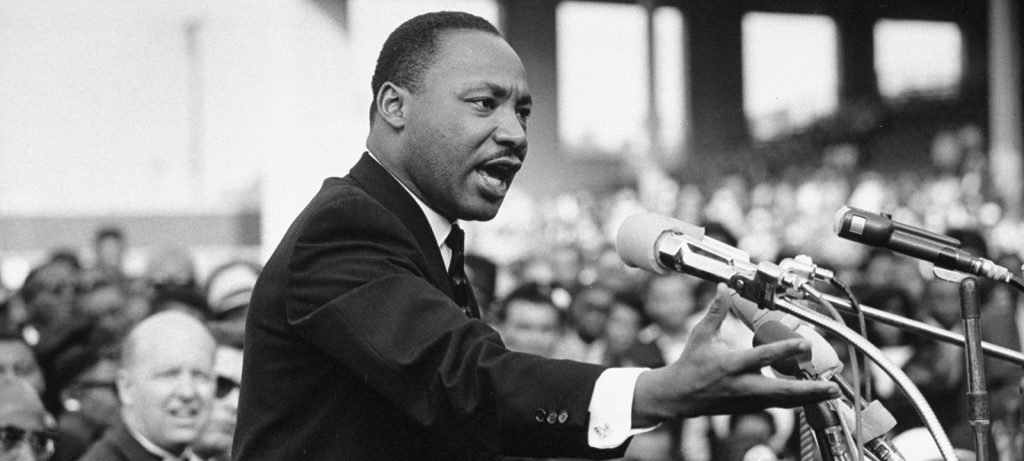
“World peace through nonviolent means is neither absurd nor unattainable. All other methods have failed. Thus we must begin anew. Nonviolence is a good starting point. Those of us who believe in this method can be voices of reason, sanity, and understanding amid the voices of violence, hatred, and emotion. We can very well set a mood of peace out of which a system of peace can be built.” Dr. Martin Luther King, Jr.
“The legacy of Dr. Martin Luther King Jr. encompasses influential decisions, monumental actions and steadfast progressions of humanitarian rights that reach far beyond the civil rights movement. A leader of all people, Dr. King never chose fear, but always chose courage and determination when fighting for civil rights in the face of oppression, ignorance and violence. He refused to allow prison, violence or the threat of death sway his end mission. Instead, he stood beside his goal of achieving rights for all through nonviolent protests.
Dr. King maintained a vision for a more diverse America where all people enjoyed the benefits of equality. During a time when the opposition implemented legislation that withheld rights from people of color and expressed hatred through beatings and killings, Dr. King continued to take the high road. He realized that violence would play into the scheme of the opposition. He knew that violent retaliation would fit exactly into the assumed mold that many had formed regarding civil rights activists. Because of that, he constantly preached that nonviolence will ultimately allow the opposition to prevail.
Dr. King also understood the impact of unifying the masses in the push for one common goal. Separately, attaining any significant progress would be a challenge. Collectively, he and other civil rights activists could affect policies and influence change nationwide. Dr. King’s leadership contributed to the overall success of the civil rights movement in the mid-1900s and continues to impact civil rights movements in the present.
While King and other leaders generated momentous strides for equality, the push for civil rights remains a preeminent challenge today. We continue to experience poverty in the inner cities. We continue to fight for equal pay regardless of gender or race. We continue to battle education inequality. We continue to call for justice for all. Dr. King’s legacy provides a staple model for how we combat inequality today. We cannot get comfortable in our current state. Too many people are relying on us to recognize and fight the inequalities that exist today.” The National Civil Rights Museum
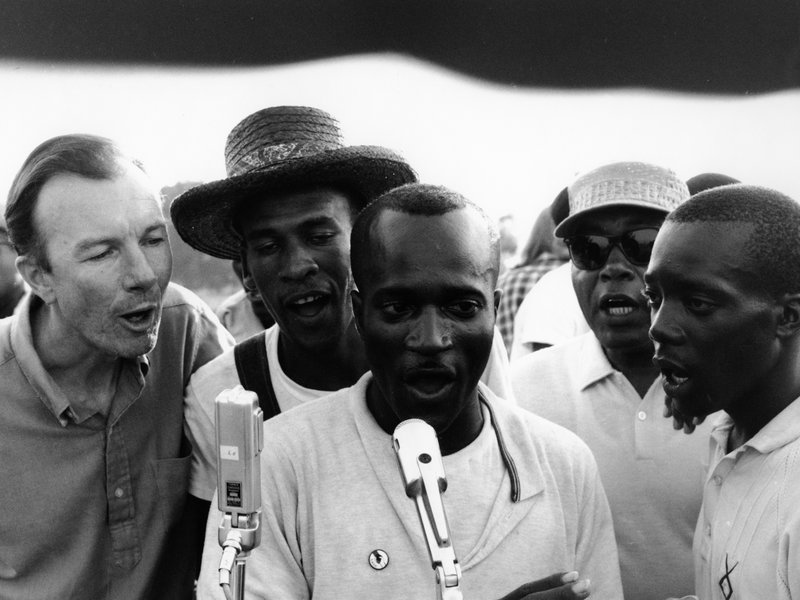
Today, I also remember Pete Seeger. He would be turning 101 on January 26. Like Dr. King, Pete Seeger is one of my heroes. A folk singer and activist, he inspired children and adults around the world. As a boy, I listened to the record ‘Birds, Beasts, Bugs & Fishes Little & Big: Animal Folk Songs’ until it could be played no more. It was always special for me to see Pete Seeger perform over the years, and it was a privilege to meet him when my daughter and the Lower School Chorus at Moses Brown joined him to sing a new song – “Take It From Dr. King” – (below) that he had just written to honor Dr. Martin Luther King, Jr. “The key to the future of the world is finding the optimistic stories and letting them be known.”
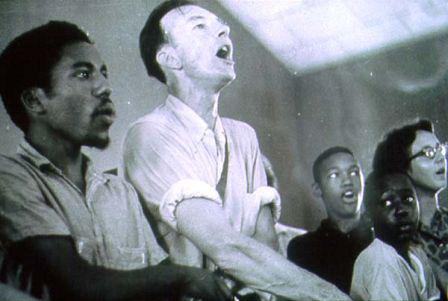
“Pete Seeger adopted and helped popularize “We Shall Overcome” by teaching the song at rallies and protests. “We Shall Overcome” began as a folk song, a work song. Slaves in the fields would sing, ‘I’ll be all right someday.’ It became known in the churches. A Methodist minister, Charles Albert Tindley, published a version in 1901: “I’ll Overcome Someday.” The first political use came in 1945 in Charleston, S.C. There was a strike against the American Tobacco Co. The workers wanted a raise; they were making 45 cents an hour. They marched and sang together on the picket line, “We will overcome, and we will win our rights someday.”
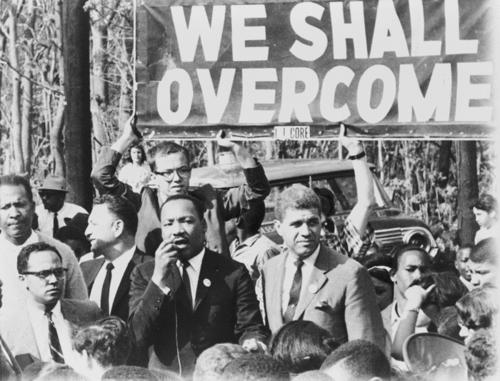
“There’s a little song that we sing in our movement down in the South. I don’t know if you’ve heard it,” Dr. King shared in a speech shortly before his assassination. “You know, I’ve joined hands so often with students and others behind jail bars singing it: ‘We shall overcome.’ Sometimes we’ve had tears in our eyes when we joined together to sing it, but we still decided to sing it: ‘We shall overcome.’ Oh, before this victory’s won, some will have to get thrown in jail some more, but we shall overcome.” (npr)
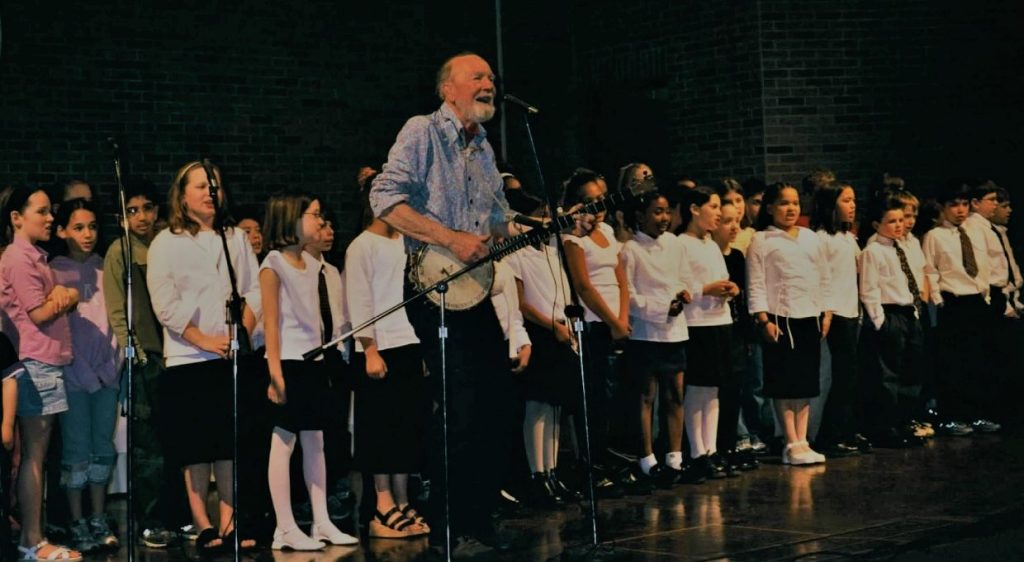

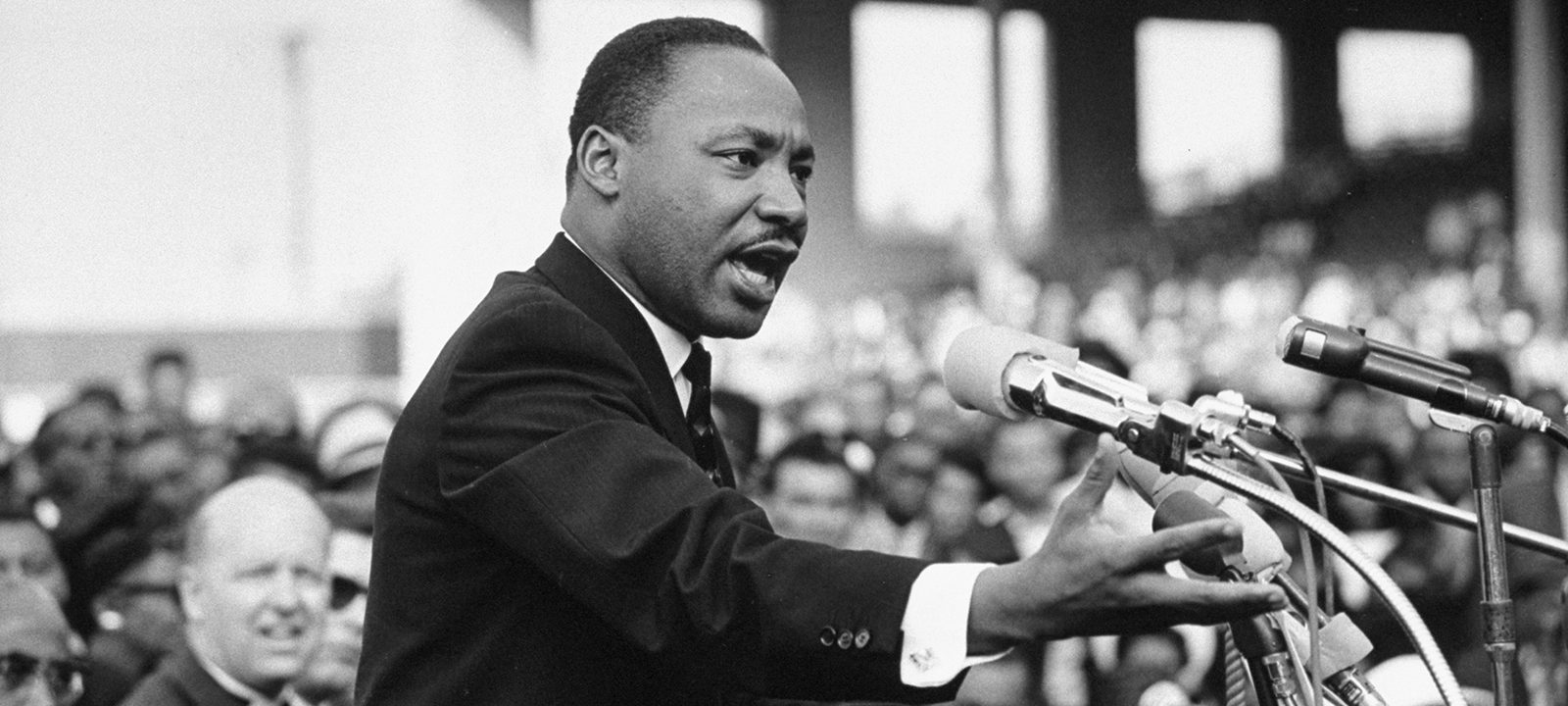
Thank you for posting this on the eve of the holiday dedicated to the legacy of Dr. King. So many important reminders are packed into this entry. I had never seen these examples of Pete Seeger’s invoking the work of Dr. King before, and am so glad to know of them. I love the video of his song – both inspirational and illustrative of the power of music to uplift, galvanize and unify.
Thank you for bringing together two of my iconic heroes and invoking so many memories…of singing “We shall overcome “ in countless anti – war marches, of car rides with a Pete Seeger sing a long on the radio ( with a cassette tape!) and a lifetime of memories, uplifting and strong. This history is one I wish to give my grandkids, Emily and Kayla C.